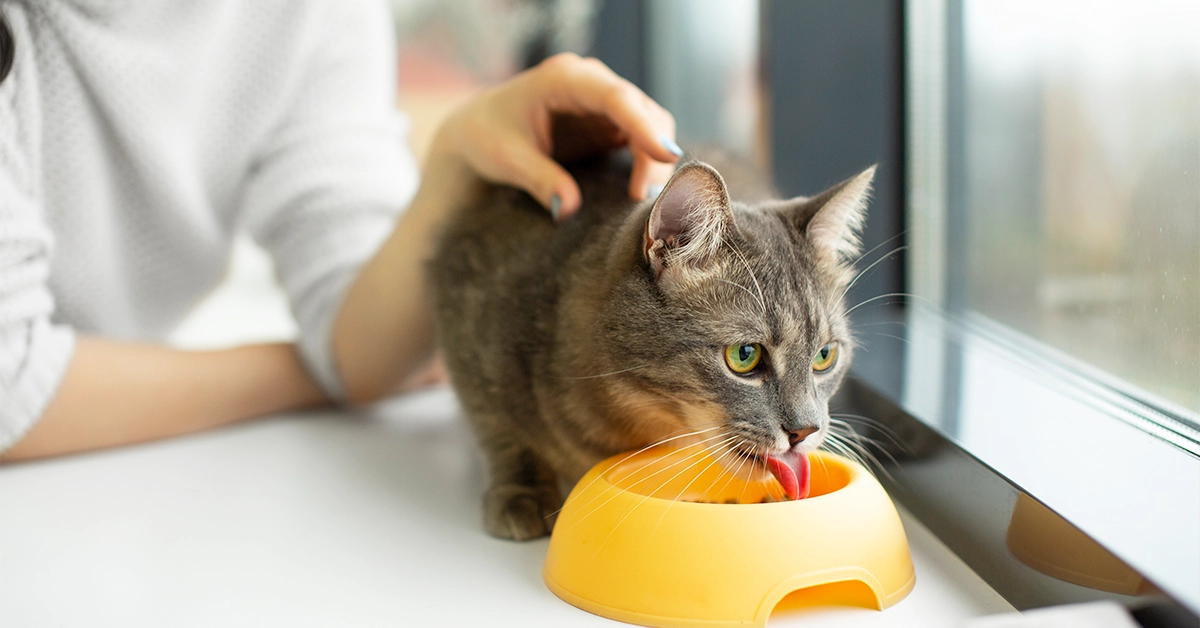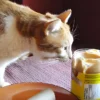Should You Give Your Cat Bread? Risks, Benefits, and Safer Alternatives
Have you ever caught your cat curiously eyeing a piece of bread and wondered if it’s safe to share? While letting your feline friend die on that leftover toast might seem harmless, you might be surprised to learn that bread isn’t always the best treat for cats. Before you toss them a crust, it’s important to consider the potential risks, unexpected benefits, and healthier alternatives. Should you give your cat bread?
When sharing food with our feline friends, many cat owners wonder, “Is it safe to give cats bread?” While cats are curious creatures that may show interest in different human foods, bread may not be the best option. Let’s explore whether you can feed a cat bread, the risks involved, and healthier alternatives.
Can You Feed Cat Bread?
Bread, in its basic form, is not toxic to cats, so it may be safe for them to eat a small piece on rare occasions. However, cats are obligate carnivores, meaning their diet primarily consists of meat. Bread, a carbohydrate-heavy food, offers little nutritional value for them. While a bite-sized amount of plain bread may not harm your cat, it should not become a regular part of their diet.
Risks of Feeding Bread to Cats
Before you toss a piece of bread to your cat, it’s essential to understand the risks:
1. Digestive Issues
Cats’ digestive systems are not designed to process large amounts of carbohydrates like bread. Eating too much bread could lead to stomach upset, vomiting, or diarrhea. Bread is low in essential nutrients and high in calories, which could cause digestive discomfort for your cat.
2. Weight Gain
Bread contains empty calories that provide no nutritional benefit to cats. Regularly feeding your cat bread can lead to unnecessary weight gain, which may increase the risk of obesity, diabetes, and other health issues. Since cats require a protein-based diet, bread can displace more vital nutrients from their meals.
3. Toxic Ingredients
Not all bread is created equally. Many types of bread contain ingredients harmful to cats. For example, garlic, onion, raisins, or certain spices used in flavored bread can be toxic to cats. Doughy bread can also expand in a cat’s stomach, causing bloating or even serious health issues like stomach torsion.
Can You Give a Cat Wheat Bread?
Many cat owners may ask, “Can you give a cat wheat bread?” Whole wheat bread is often considered healthier for humans, but for cats, it still provides little nutritional value. Like other types of bread, wheat bread is primarily made of carbohydrates, which do not benefit your carnivorous cat. A small amount of plain wheat bread is unlikely to harm your cat, but it provides no real advantage either.
Benefits of Bread for Cats: Are There Any?
There are few, if any, benefits to giving bread to cats.
- Cats do not need carbohydrates like humans do, and they thrive on a diet rich in protein.
- The only potential benefit of bread is that it can sometimes be used as a tool to give medication.
- Some pet owners may hide pills in a small piece of bread to make it easier for the cat to swallow.
However, even this should be done sparingly and only with plain bread.
Safer Alternatives to Bread
If you’re looking for treats to give your cat, there are far healthier alternatives to bread. Cats prefer protein-rich snacks that align with their natural dietary needs. Here are some safer options:
1. Cooked Meat
Small pieces of cooked chicken, turkey, or beef can be a nutritious and safe treat for your cat. Make sure the meat is plain, without seasonings, and cooked thoroughly.
2. Cat Treats
Many commercial cat treats are specially formulated to provide additional nutrients while being low in calories. These treats come in various flavors that are appealing to cats, such as tuna or chicken.
3. Fish
Plain, cooked fish like salmon or tuna can be an excellent snack for your cat in small portions. Avoid giving raw fish or fish with bones to prevent choking or digestive problems.
4. Catnip
Catnip is a fun treat that many cats enjoy. It’s a natural herb that stimulates a playful response, providing both entertainment and a reward for your cat.
Is It Safe to Give Cats Bread?
In summary, can you feed cat bread? Technically, yes, in small amounts, but it’s not advisable. While plain bread may not be harmful in minimal doses, it does not offer any significant health benefits for your cat. Feeding your cat bread regularly can lead to digestive issues, weight gain, and nutrient imbalances. Stick to high-protein treats and safer alternatives that cater to your cat’s dietary needs. Always consult your veterinarian if you’re unsure about what foods are safe for your cat. When it comes to your pet’s health, it’s best to prioritize their nutritional needs over the temptation to share human food.
FAQs:
Can I give my cat bread?
Yes, in small amounts, but it’s not recommended. Bread offers little nutritional value and can cause digestive issues or weight gain if given regularly.
Is bread safe for cats to eat?
Plain bread is not toxic to cats, but it provides no health benefits and can lead to digestive discomfort if consumed in large quantities.
What are the risks of feeding bread to my cat?
Bread can cause digestive issues, weight gain, and nutrient imbalances. Additionally, flavored bread with toxic ingredients like garlic or onion can be harmful.
Can cats eat wheat bread?
While a small piece of plain wheat bread is unlikely to harm your cat, it still offers no real nutritional benefits and should be avoided.
What are safer alternatives to bread for cats?
Healthier options include cooked meat (chicken, turkey, beef), commercial cat treats, plain fish, and catnip, which better suit a cat’s protein-based diet.



